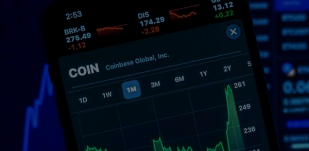A Guide to Payment Methods in International Trade
Supply chains and customer sales opportunities are becoming increasingly global. International trade provides access to new sources of revenue and a diversified supplier base. To tap into markets wherever they are, your business needs to be able to make secure cross-border transactions.
Sending and receiving money across borders carries more risk and complexity than making domestic payments. So, it’s important that you understand the available options and choose the right payment methods for international businesses to support your company’s expansion.
Online payment platforms
Business payment platforms are online services that help you simplify the process of managing and tracking foreign currency transactions, reducing the costs and complexity of international payments. These tailor-made, secure platforms are the safest mode of payment in international trade.
With providers like Clear Currency, you can get instant, competitive exchange rates and make transfers on the same day on selected currencies. You can pay invoices quickly and transfer incoming funds to your domestic business bank account at favourable rates. Payment platforms offer transparent fees and 24/7 access to your accounts. You can also receive telephone support as needed with the ability to lock in forward exchange rates.
However, online platforms charge service fees and are not convenient for completing offline purchases or sales.
Business payment platforms are best suited to businesses that make or receive payment in multiple currencies across several countries, as they streamline transfers and save on foreign exchange costs.
Cash transfers
Whether by wire transfers, debit/credit cards or Escrow, cash payments are a straightforward means of payment in international trade and, traditionally, the most common. You can send and receive cash transfers directly to and from suppliers and customers.
If you are selling goods and services to a foreign buyer, you may prefer to be paid in cash in advance to ensure that you receive the funds. With advance payment in cash, there is no risk of a customer defaulting on their bill after they receive the goods. Cash is also king for business cash flow management. But if you’re the buyer, there is a risk that you could pay the exporter and then not receive what you’ve paid for, with no recourse if the funds have already been transferred. Paying in advance also ties up cash flow before your business receives the goods.
In addition, wire transfer providers and banks often charge high processing fees and commission for handling foreign currency.
The payment risk and exchange fees associated with cash mean that it is typically used for small transactions or with trustworthy suppliers.
Documentary collections
To address the risks inherent in international trade, documentary collections use banks as intermediaries to ensure that payment is completed, and goods are delivered. When an exporter makes a shipment, their bank sends the ownership documents to the importer’s bank, which then takes the payment and releases the documents required so that they can take delivery of the goods.
The documents include transaction invoices, certificates of insurance and origin, packing lists, as well as bills of exchange which demand payment.
The advantage of using banks as an intermediary is that exporters and importers share the risk. If you’re the supplier you only transfer ownership of the goods to the buyer when you receive payment, and if you’re the buyer you only pay when the supplier ships the goods. Documentary collection also costs less and is faster to set up than obtaining a letter of credit.
The main disadvantage of this method of trade finance is that while the importer is unable to take delivery of the goods without paying, there is little recourse if the importer fails to make the payment.
Documentary collections tend to be used between suppliers and buyers who have established trust, especially in countries with solid legal contract enforcement.
Letters of credit
A letter of credit is one of the most used instruments of payment in international trade. The buyer’s bank issues a document guaranteeing that the bank will pay the exporter once they meet certain terms and conditions. The issuing bank agrees payment terms based on their credit rating.
While letters of credit provide certainty that the supplier will receive payment, the foreign buyer must pay expensive bank fees. The cost depends on the details of the transaction and the buyer’s creditworthiness.
Letters of credit are most often used when exporters and importers are trading with each other for the first time or there are questions about the importer’s ability to pay.
Cryptocurrencies

Cryptocurrencies and blockchain payment networks are increasingly being used for cross-border payments. Cryptocurrencies have the potential to become one of the main types of payment methods in international trade in the future.
Public blockchains are designed to facilitate global payments over secure networks with low transaction fees and instant settlement. You can send and receive cryptocurrency payments in close to real-time, rather than waiting several days for payments to clear through the traditional banking system.
The disadvantage of cryptocurrencies is that there are now thousands of coins with wildly fluctuating values. If you opt to use cryptocurrencies, your trade partners are more likely to trust well-established coins like Bitcoin and Ether. They also need to have a digital wallet in place to send or receive payment.
Cryptocurrencies are a useful payment method for trade between countries that do not have linked banking systems. They also remove foreign exchange risk from the equation, so the supplier receives the full amount of the funds agreed. This is especially valuable if the buyer or seller’s currency is highly volatile.
How to pick the best payment method
When choosing the methods of payment in international business, there are several factors you need to consider. The best payment modes for your business will depend on the type of goods and services you trade internationally, how many currencies you need to deal in and the size of your transactions. You should also consider the type of trade partners you will deal with as well as their creditworthiness.
The cheapest payment method may not be the best if it takes several days to clear and you need fast transfers. Similarly, direct payments may not be the most appropriate choice if you need third-party support.
Expand your business with international payments
With the growth of online services, there are more modes of payment for international trade available than ever before. Different payment methods can be appropriate for different trade deals, so offering your buyers and suppliers flexibility will help you to secure the most business.
Choose Clear Currency for your international payments
Clear Currency provides support throughout the cross-border payment process. Our bespoke platform enables your business to automate international transactions to make sure they are completed on time at competitive exchange rates. Our currency specialists help you to secure forward contracts to lock in the cost of currency exchange and better manage cash flow.
Sign up for a no-obligation account today and learn how your business can better navigate complex international payment infrastructures with Clear Currency.
Related Articles
How to Mitigate Foreign Exchange Risk
Currency risk can have a significant effect on the efficiency and profitability of any international business. Each exchange rate movement affects how much you receive from sales and what you pay to suppliers.
Read more
Moving to Dubai from the UK: Checklist
You’re ready for a new life overseas and have decided you’re moving to Dubai. Now it’s time to consider the various costs involved, from your visa and accommodation, to health insurance, shipping your belongings and bringing your beloved pets along too.
Read more
Currency Outlook Quarter 1 2023
Clear Currency looks back at the performance of the US dollar, euro and sterling in Q4 2022, and assesses what might be in store for Q1 2023.
Read more


